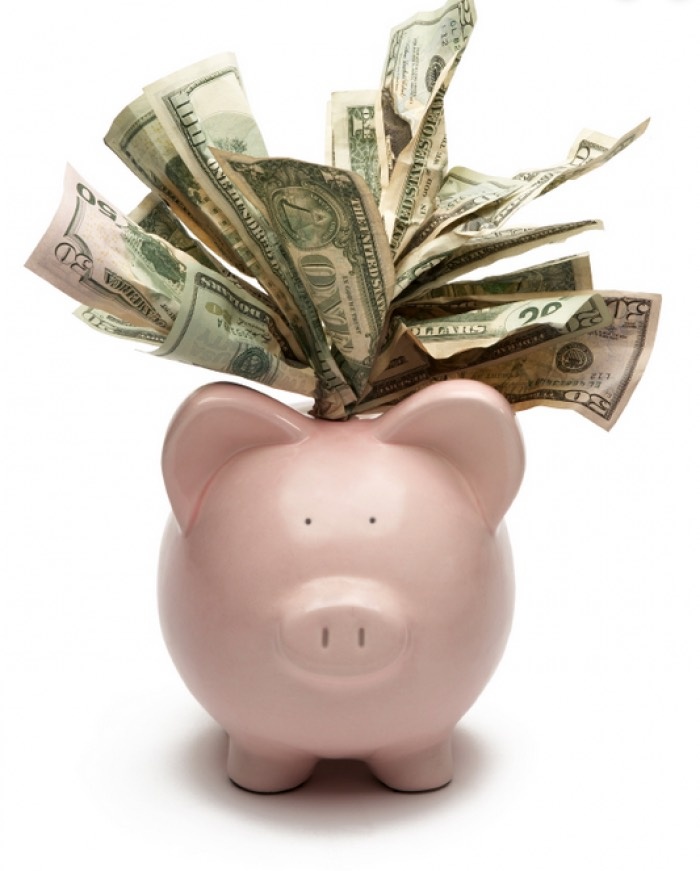Who doesn’t love a good life hack? Those little tricks that are easy, simple and best of all, effective. Some may say they are silly but hey – if they get the job done, then why not!? Sometimes in life, it’s all about being resourceful and getting a little creative. Like using a paperclip to never lose the end of a tape roll again. Or using a hair dryer to remove those stubborn stickers stuck on that new toy or piece of furniture.
There are similar “hacks” that can be related to your money habits too. By changing your mindset or approach to spending, it can make all the difference to building good money habits (or potentially breaking some bad ones).
Start here for some general words of wisdom:
- Keep it Simple: with so many apps, tools and resources available, it’s easy to get distracted. Find what budget system works best for you and don’t overcomplicate it. At the most basic level, spend less than your earn and invest the rest.
- Don’t Skimp on Retirement Savings: “your future self with thank you,” as the saying goes. Although this can get tricky when on a more limited budget, do your best to max out your Roth IRA and/or 401K every year. If your employer offers a match, prioritize your money to take advantage of this benefit.
- Get on Auto Pilot: set up automatic payments and transfers so you don’t have to think about it each month. This can include automatic bill pay for credit cards or loans, retirement contributions or savings plans. Don’t forget to check in on progress frequently, but this will ensure you don’t miss a beat in these important financial goals.
Next, consider these tips for everyday activities:
- Cook at Home: this saves money and is healthier for you, so find what balance works best. Perhaps it’s cooking at home 4 nights a week or setting up a weekly potluck dinner with friends. This also relates to lunch – by bringing your lunch to work instead of eating out, it can save an estimated $3,000 per year.
- Actively Manage Your Subscriptions: subscriptions have become a prominent part of everyday life and can quickly add up. Take inventory of all the subscription services you have and evaluate if all are necessary. Check if any have been steadily increasing, such as your cable or Internet bill. This could be a good opportunity to call the company and negotiate a better price.
- Pay More than Minimum Payment: whether a mortgage, car loan or credit card payment, most of us have some monthly debt we’re paying off. Instead of only paying the minimum each month, bump this up to help make a bigger dent in it. Even if you can only afford a little bit extra, make this a habit to ensure you are making progress.
Now get a little creative to find your money management trick:
- Use a 30-Day List: if you want something, write it down on a list and then wait 30 days to evaluate it. This helps ensure that it isn’t an impulse buy but rather the item is truly something you should purchase.
- Find Your Value System: for example, if you value experiences over possessions, implement this lens on your purchasing criteria. Let’s say you want that new shirt for $50. Before buying, compare this cost to an experience – such as a wine and canvas painting class. This can help you determine what is more valuable to you.
- Reminder Notes: whether you include a note on your calendar every payday, tape a reminder on your credit card or have a motivational money quote on your desk – these simple reminders can help keep your head on straight.
- Use an Accountability Partner: whether a family member, friend or colleague – having a partner to discuss your goals and be a sounding board when considering a purchase can be extremely beneficial. They may just be looking for a similar accountability partner to pursue their own financial goals, so don’t feel like you are putting someone out by asking for support.
- Create a List and Stick to It: whether going to the grocery store or visiting the mall, don’t underestimate the power of writing down your shopping list. This not only keeps you on track, but it can also reduce any impulse spending.
- Don’t Save: … your information on e-commerce sites. If you’re an online shopaholic, add this barrier to take an extra step before purchasing. Although it’s convenient to one-click and buy, it can be better for your wallet if you require yourself to enter this information before purchasing.
There are countless ways you can reframe your mind to help drive positive money management habits. By determining your “trick,” it can help unlock your potential to your best money management self. Get creative and have fun with it… and your future self will thank you later.
